Free open source ecommerce software like WooCommerce, Magento, and PrestaShop makes it easier to take your small business online. We list the 10 top open source ecommerce tools.
 Top 10 Open Source Ecommerce Tools
Top 10 Open Source Ecommerce Tools
According to the U.S. Census, online retailers in the United States sold $97.3 billion worth of goods in the second quarter this year. That represents roughly 8 percent of all retail sales in the country during that time period.
If you’re a small business owner, getting a piece of that market can seem like a very attractive opportunity. But setting up an online shop may be a daunting prospect if you aren’t very technical.
In this article, we feature 10 ecommerce software solutions that can make setting up an online store easier. These are all open source solutions, which means that they are completely free if you run the software on your own server. If you don’t want to host your own website, many of them are also available through hosting providers for a small fee.
If you already have a website, many of the options on this list simplify the process of adding ecommerce capabilities to your existing site. Others are ideal for small businesses that are starting from scratch. All of them are easy to use, even if you’ve never managed a website before.
And if you don’t find exactly what you’re looking for in our slideshow, you’ll find dozens of other open source ecommerce platforms available. You might want to check out HikaShop, Loaded Commerce, xt:Commerce or Zeuscart.
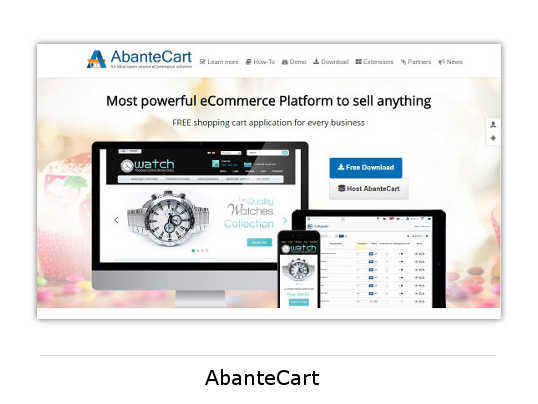 AbanteCart: Open Source Ecommerce Software
AbanteCart: Open Source Ecommerce Software
AbanteCart is a full-featured free ecommerce solution that claims to be the “most powerful ecommerce platform to sell anything.” It has a very easy-to-use Web-based interface that doesn’t require any coding knowledge. If you already have a blog or a website, Abante makes it very easy to embed the shopping cart into your existing pages, and there’s even a video on the site that shows how to add the store functionality to a website hosted on WordPress.
The software is completely free, and if you consider yourself moderately technical, you should be able to figure it out on your own. However, if you need some assistance, the site also includes links to partner firms that offer services related to the software.
 Broadleaf Commerce: Open Source Ecommerce Software
Broadleaf Commerce: Open Source Ecommerce Software
Although it advertises itself as an “enterprise” solution, Broadleaf Commerce is also suitable for small businesses, especially if you hope to expand rapidly over time. Its well-known customers include The Container Store, Ganz, and Pep Boys. The full solution includes a shopping cart, search capabilities, a content management system, customer management and order management features, and it’s customizable and highly scalable.
It’s free for companies with less than $5 million in revenue, and it also comes in paid B2C, B2B, and multi-tenant versions that add more features and support. Broadleaf also offers services like training, implementation, mentorship, and feature development.
 Jigoshop: Open Source Ecommerce Software
Jigoshop: Open Source Ecommerce Software
If you built your current website or blog on WordPress, Jigoshop might be a good option for you. In order to help small business owners maximize their sales, it includes powerful search engine optimization (SEO) capabilities, as well as integrated marketing tools like gift certificates, coupons, and more. The site provides several demos, so you can see it in action before you download. And it offers quite a few extensions (both free and paid) that increase its capabilities. According to the website, Jigoshop’s been downloaded more than half a million times.
 Magento: Open Source Ecommerce Software
Magento: Open Source Ecommerce Software
Award-winning Magento claims that it powers more Internet Retailer Top 1,000 merchants than any other ecommerce platform, and more than 250,000 online stores use its free community edition. Popular brands that use the software include RosettaStone, Ghirardelli, Nike, Olympus, Radio Flyer, and many others. It also comes in a paid Enterprise edition and a paid Enterprise Cloud Edition.
For small businesses, Magento partners with Zoey, a service provider that can design and host your website, including Magento-based ecommerce capabilities, with fees starting at $89 per month. The website also includes a marketplace with a variety of other partners that offer related solutions and services, such as email marketing, affiliate marketing, hosting and more.
 NopCommerce: Open Source Ecommerce Software
NopCommerce: Open Source Ecommerce Software
Downloaded more than 1.5 million times, nopCommerce is one of the most popular open source ecommerce solutions available. It’s best for growing small businesses that have outpaced their existing shopping cart solutions and want something a little more substantial.
In 2015, NopCommerce won a People’s Choice Award as the best ecommerce for small business. The solution is completely free, but you can access paid support if you need it. The company also partners with companies that offer paid hosting for NopCommerce-based sites. Note that this software requires a server running Microsoft Windows and Microsoft SQL Server.
 OsCommerce: Open Source Ecommerce Software
OsCommerce: Open Source Ecommerce Software
Used by more than 280,000 online stores, osCommerce aims to provides small business owners with all the software whey need to set up a self-hosted ecommerce site. The project has been going strong for more than sixteen years, and it has a solid track record. Paid support and other services are available through the project’s partners, and it has more than seven thousand free and paid add-ons that extend the capabilities of the platform.
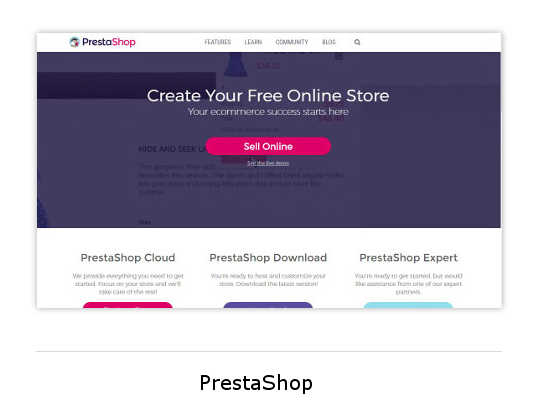 PrestaShop: Open Source Ecommerce Software
PrestaShop: Open Source Ecommerce Software
PrestaShop stands out for its large catalog of available themes, which makes it easy to design an ecommerce site that meets your small business’s needs. It also offers a wide variety of features designed to increase sales, such as mobile-friendly design, promotional banners, cross-selling, SEO tools, reviews, email marketing and more.
This open source ecommerce software includes built-in analytics that can help small business owners see what’s happening with their stores and quickly make changes to boost traffic and revenue. In addition to the free download, PrestaShop is available in a paid cloud version that includes hosting; you can obtain additional services through its various partners.
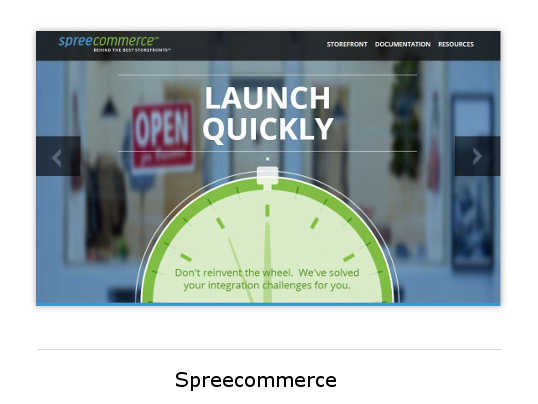 Spreecommerce: Open Source Ecommerce Software
Spreecommerce: Open Source Ecommerce Software
Used by more than 45,000 online retailers, Spreecommerce uses a modular design that allows small businesses to turn features on or off, thus making it possible to customize your store to your exact needs. The storefront also offers unique features that customize the shopping experience for end users— like style quizzes, product configuration tools, and subscription purchasing.
Want to see Spreecommerce in action before you commit? The company website includes links to existing ecommerce sites that were built using the open source ecommerce software. Various partners provide services and support.
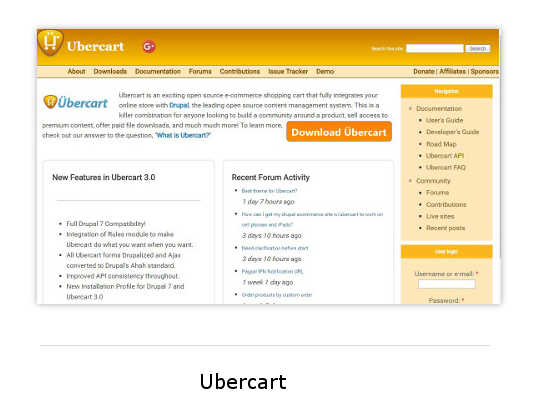 Ubercart: Open Source Ecommerce Software
Ubercart: Open Source Ecommerce Software
If you already have a website based on the popular Drupal content management system, Ubercart might be a good open source ecommerce software choice for you. You can use it to sell access to paid premium content, like articles or videos, as well as to sell physical goods or services.
The website features a demo and links to current online stores that demonstrate its functionality. And because it’s part of the Drupal ecosystem, you’ll find plenty of add-ons and themes to help you customize it to your exact needs. It’s also secure, search-engine friendly, and very flexible. However, if you don’t have experience with maintaining a website, it’s not quite as easy to use as some of the other open source ecommerce software options in this slideshow.
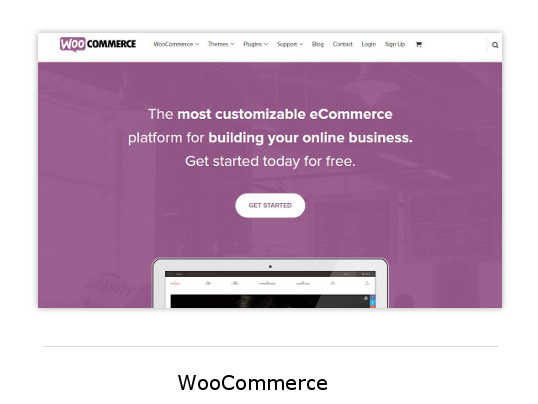 WooCommerce: Open Source Ecommerce Software
WooCommerce: Open Source Ecommerce Software
Powering 37 percent of all online stores in existence, WooCommerce claims to be “the most popular eCommerce platform on the Web.” It’s been downloaded more than 16 million times, and it’s very easy to customize. WooCommerce is an excellent choice if you already have a website or a blog based on WordPress. If you’re starting from scratch, the site includes links to partners who will host your WordPress and WooCommerce site for very reasonable monthly fees.


